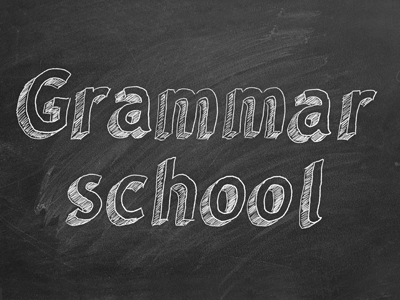What is a Grammar School Test?
To be selected for grammar school children aged ten must be amongst the highest performers in the eleven plus exam. There are only 163 grammar schools in England so competition is fierce
Deep Dive into Grammar Schools: The Pillars of British Education
 The British educational system, with its rich tapestry of history and evolving paradigms, has always held grammar schools as one of its core institutions. These schools, with their distinctive selection process, have been both revered and critiqued in equal measure.
The British educational system, with its rich tapestry of history and evolving paradigms, has always held grammar schools as one of its core institutions. These schools, with their distinctive selection process, have been both revered and critiqued in equal measure.
The Legacy and Prestige of Grammar Schools
Grammar schools, unlike many other educational establishments, do not rely on geographic location, faith, or legacy as their primary admission criteria. Instead, they have established a rigorous testing mechanism to evaluate and admit students based on merit. The common test, typically taken during the final year of primary schooling, serves as the gateway for entry into these prestigious institutions. With this model, grammar schools ensure that they admit children who, according to the test's criteria, exhibit superior academic prowess and potential.
LEARN ABOUT THE BENEFITS OF LEARNING THROUGH QUIZZES
Scarcity Fuels the Competition
The allure of a grammar school education can be attributed to many factors, but scarcity plays a significant role. Consider this: in the vast expanse of over 3,000 secondary schools that dotted England's educational landscape in 2018, a mere 163 were grammar schools. This stark disproportion between demand and supply has inevitably led to fierce competition. Parents, well-aware of the potential opportunities and advantages that a grammar school education can confer upon their children, often invest considerable time and resources in preparation for the entrance exam.
What Makes 'Selective Schools' Truly Unique?
The terminology 'selective schools' is, in many ways, synonymous with grammar schools, emphasizing their rigorous and discerning admission process. At the foundation of this process lies a test, which, while gauging knowledge, also seeks to evaluate the child's potential. However, as with many systems, there are concerns. With the rise of affluent parents employing tutors to train their children specifically for these tests, questions regarding the inherent fairness of the selection process have been raised. Critics argue that this trend skews the system in favor of those with resources, potentially undermining the very essence of meritocracy that grammar schools espouse.
FIND OUT WHY KIDS LOVE OUR WEBSITE
The Eleven Plus Exam: A Closer Examination
At the crux of the grammar school selection process is the Eleven Plus exam. Unlike many other standardized tests, this exam is not about simply passing or failing. It employs a rank-based system. So, in a hypothetical scenario where a grammar school has only 100 available spots, these seats would be awarded to the top 100 scorers. The intricacies of the test can vary depending on the region, but they often revolve around evaluating the student's aptitude in maths, English, and their verbal and non-verbal reasoning abilities.
Unpacking the Balance: Intelligence vs. Academic Proficiency
One of the most fascinating aspects of grammar school tests is their approach to assessment. They don't merely focus on academic proficiency; they also probe the raw intellectual capacity of the students. For instance, the non-verbal reasoning section delves deep into a student's ability to recognize patterns, drawing parallels with conventional IQ tests. Verbal reasoning, on the other hand, is a testament to a child's analytical prowess and logical thinking. The inclusion of maths and English sections aims to gauge not just where a student stands academically at the moment, but also their potential to excel in future learning environments.
A Historical Perspective: The Evolution of Grammar Schools
 A journey through the annals of English history would reveal that grammar schools have been integral to the nation's educational fabric since the 16th century. But it's important to recognize that the ancient grammar schools differ considerably from today's institutions. The pivotal 1944 Education Act brought about sweeping reforms, introducing a system that categorized students based on their academic capabilities. Over time, the British educational landscape began to gravitate towards comprehensive schools, aiming to provide a more inclusive form of education. Yet, despite these shifts, grammar schools, especially in affluent regions, have managed to retain their charm, allure, and relevance.
A journey through the annals of English history would reveal that grammar schools have been integral to the nation's educational fabric since the 16th century. But it's important to recognize that the ancient grammar schools differ considerably from today's institutions. The pivotal 1944 Education Act brought about sweeping reforms, introducing a system that categorized students based on their academic capabilities. Over time, the British educational landscape began to gravitate towards comprehensive schools, aiming to provide a more inclusive form of education. Yet, despite these shifts, grammar schools, especially in affluent regions, have managed to retain their charm, allure, and relevance.
The Future Trajectory: The Debate Rages On
Grammar schools have never been strangers to controversy. A 2018 report from Durham University reignited age-old debates, suggesting the removal of grammar schools from the state system. The central argument posited that these schools, while excellent in many ways, might inadvertently exacerbate social divisions and put certain demographics at a disadvantage. Yet, despite these arguments, grammar schools remain entrenched in the educational system. Their legacy, combined with consistently impressive academic outcomes, makes it likely that they'll continue to play a significant role in shaping England's educational future.
SEE HOW WE MAKE REVISION EASIER FOR KIDS
The Expansive World of Education: More to Discover
Your exploration into the world of grammar schools is just one chapter in the vast narrative of education. Our Knowledge Bank stands as a treasure trove of information on myriad educational topics. Whether you're a proactive parent eager to enrich your child's learning journey or an educator seeking fresh insights, our resources are here to guide and inform. So, take a leap and dive deep into the ocean of knowledge we offer.



